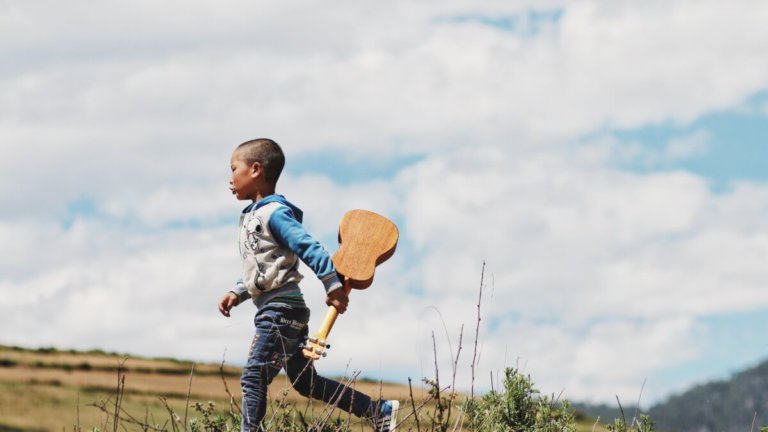
As a universal art form, music is a force that stirs emotions, uncages creativity and educates students on freedom of expression.
Regrettably, there’s been a recent shadow of doubt cast above the availability of music lessons in schools.
From the perspective of Jack Pepper, a composer, broadcaster and writer, music has been drained from state schools in the UK due to “slashed budgets, fewer specialist teachers and a growing focus on STEM subjects”, swaying music education to the sideline.
Offering multiple benefits, Jack believes that music-making provides the ultimate health boost.
“Musicians work the body in the same way an athlete trains a muscle. There are social benefits, meeting new people through the universality of music: the Bournemouth Symphony Orchestra’s Cake Concerts, for example, take professional players into care homes. Music improves emotional intelligence, a vital point at a time of growing awareness of mental health. Music is communication, expression and emotion in sound: what would humanity be without these?” he questions.
With growing fears that schools care more about STEM-focused subjects than creative ones, educators around the world are sourcing new ways to merge music with STEM.
Our Year 3 children loved taking part in the ukulele lessons this week with Jam Rock Music School 🎼😊 pic.twitter.com/lEesZXtamy
— St Margaret’s (@St_Margarets_SG) September 19, 2019
The case of the missing music lessons
Last year, the University of Sussex revealed that music in schools is at significant risk of disappearing, as music teaching hours and staff levels continue to decline.
The survey reported that:
- A decline in the number of schools offering GCSE music and other Key Stage 4 qualifications, with some schools only offering it outside of school hours if at all.
- 15.4 percent fewer centres offered A-Level music in 2018 compared to 2016, and a reduction of 31.7 percent in A-Level music technology. This is likely to be reflected in the decreasing number of candidates sitting these qualifications in 2019 and 2020.
- An increase in music teachers teaching outside their subject area – over 70 percent cited often doing so since 2016, and a potential rise in redundancies for music teachers in the next academic year, with some responses noting that music teachers were not being replaced when they left or retired.
Of the 464 schools in England which responded to this survey, 423 were state schools and 41 were independent schools, all of which were feeling the loss of music education.
“Free music lessons in schools are now denied to so many children” – Sarah Williams, music teacher & performer.
If you care, sign up as an MU supporter for free
→ https://t.co/qi8wkYa9Hd pic.twitter.com/KdfSQ8KCZH
— Musicians’ Union (@WeAreTheMU) June 30, 2019
Reviving music education through STEM
A study from the University of British Columbia in Canada discovered that students who took music lessons in high school performed better in subjects such as English, science and maths.
Published this year, A Population-Level Analysis of Associations Between School Music Participation and Academic Achievement found that “Highly engaged instrumental music students were, on average, academically over one year ahead of their peers.”
The findings that suggest a “Multiyear engagement in music, especially instrumental music, may benefit high school academic achievement.”
With evidence of a strong correlation between music education and successful STEM results, it would be a shame to eliminate music learning from school students’ lives, especially when merging the two together could work in their favour.
Therefore, at this year’s Virtual Ongoing Interdisciplinary Collaborations on Educating with Song (VOICES) conference, strategic STEM/music educational strategies were displayed in a bid to revive the declining discipline.
From mathematical poetry to science-themed songs, there were multiple performances of the STEM and music partnership.
Impressed by the VOICES workshops, high school chemistry teacher and conference organiser Tiffany Getty revealed that the “Wide range of perspectives clearly shows that people in STEM are very open to the idea of collaborating with the arts.”
A big thanks to all the presenters today. Join our web conference again on Monday and encourage others to learn more about collaborating with STEM & Music! Go to https://t.co/wyLxt39i0L and click “Watch Live.”
It is Free!— VOICES: STEM plus Music! (@VOICES_Meetings) September 23, 2019
Motivated by the notion of music education and the way it complements STEM, educators like Getty are giving alternative learning strategies a go.
Whether that equates to Hip Hop in the laboratory or classical sounds in computer labs, there are lots of genius ways to help these two concepts to collide.
Liked this? Then you’ll love…
Preparing students for a bright future in music
Pockets Change: Using hip hop to empower K12 financial literacy







